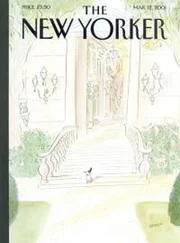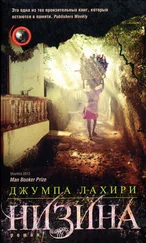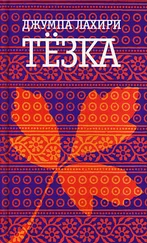In the Mirror
I clean the house from top to bottom. Every neglected nook and cranny, each windowsill, all the floors, the lampshades. I remove the stains that the detergents leave under the sink and the line of dark dust that creeps on top of the molding, dragging my finger along it, wrapped in a cloth. I clean the inside of the washing machine and the inside of my garbage can. I sweep away the detritus that gathers by the threshold of the balcony. After that I get rid of the lime that encrusts the faucets, submerging the washers in a glass of white vinegar. Now that I’m about to leave this place I want to remove every trace of myself.
I move the furniture around, inspecting within, behind, beneath. This type of filth spreads everywhere, there’s no end to it. It works its way into every surface. I go to the hardware store and buy a few things to spruce up the kitchen. Hooks for my pot holders, a receptacle in which my sponges can rest and drain. I toss out the chewed-up wooden spoons and buy new ones, arranging them in a vase like flowers. And as I’m sifting through all my belongings, I come across an old ceramic plate in a closet. Something that broke long ago. It’s in two pieces now, each still intact, the smaller one in the shape of a triangle, like a slice cut from a cake. I’m about to toss them out when I change my mind. I’m inspired to join them back up. And I think it would be worth the trouble. It’s a hand-painted piece, I’d bought it on vacation in the mountains once. I can’t remember when.
I go back to the hardware store and ask for a glue that’s good for ceramics. They give me a product that has superpowers, they say, that can make anything stick to anything else. Back at home, seated at my desk, I open the tube, follow the directions, and attach the slice to the rest of the cake. It sets instantly so that I can barely see the crack. It looks like a single folded hair. But when I close the tube I press it by mistake and a sizable clump of glue spurts out, covering my fingers, drying immediately, leaving a stubborn film on my skin. I wash my hands but that just makes matters worse. The water doesn’t rinse away the glue, and by now my fingers are sticking to one another as firmly as the slice to the rest of the cake. I look up and see myself in the mirror, weary, stiff hands coated with glue whose ghostly traces resemble the dust I’ve been working hard to get rid of all day, and after a long time, or maybe for the first time, I burst out laughing.
At the Crypt
I go visit you, too, Papà. I bring you flowers and I hear you ask me, what’s the point of these?
Here you are, in the heart of the city, surrounded by the dead: all those souls still wreathed and garlanded, lined up like boxes in the post office. You always occupied your own space. You preferred dwelling in your own realm, closed off. How can I link myself to another person when I’m still struggling, even after your death, to eliminate the distance between you and my mother, the woman with whom you chose, inexplicably, to share a life and have a child? Even today I see you walking three feet ahead of her. And maybe the gaps between those tree stumps I always hoped would diminish, and perhaps even close up completely, represented that space between the two of you.
You, who chafed at the collective we created, who only wanted to subtract yourself, always, from the equation, throwing it off-balance. You who would say succinctly and plainly while she and I would argue: Why ask me? I have nothing to do with it. You would just repeat those two sentences, a response I found both brutal and cowardly on your part. But as a result I learned not to involve you, and to never expect you to save me.
You had something to do with it, maybe you even had everything to do with it. You still do. You still occupy a space in our family, even more than the space allotted to you now in your little cell. That’s why, standing today before your cold compartment, I can’t forgive you. I don’t forgive you for never having stepped into those arguments, for never protecting me, for having forsaken your role as my defender, all because you felt that you were the victim in that tempestuous household. But that magma never touched you, you’d already built yourself an enclosure that was taller and thicker than the marble that encases you now.
What’s it like in a place where it’s always dark? You hated when we turned on the lights, you’d go around shutting them off, as often as you could, in all the rooms. You’re being wasteful, you’d grumble. On Sunday, when you had no choice but to spend the day with us, when you had no errands or appointments, no means of escape, you’d settle into an armchair in the living room, in a darkness of your own making. That was a waste of time, you’d remark after the fact, if you and my mother happened to quarrel.
You can’t go for your solitary walks anymore, you can’t go anywhere. You always wanted calm seas. You used to claim you got along with everyone, that you kept to yourself, that you needed nothing from no one. But one can’t ask the sea to never swell into rage. And you asked a great deal from me. You asked me to accept your measured responsibility, to acknowledge that you were a devoted father who was never besotted with his child.
A fever out of the blue that started to spike not long after we’d closed our suitcases. We’d already lined them up, one next to the other, in the hallway. We were supposed to leave the following day, early in the morning. But around midnight you began to slip away, your eyes unblinking, filled with fear. The second day, in the hospital, your vital organs had already begun to die.
We were supposed to go see a play together, that was something we did, you and I. The only thing that really excited you. You loved that darkness in particular, and that seat reserved for you and only you, in which you eagerly absorbed the woes of other characters. I refused to unpack my suitcase for a month. I mourned those wasted tickets, and that trip never taken, more than I mourned for you.
Up Ahead
The day before I go I step out into the piazza for a last glimpse of my present surroundings: a cupola turning pink from the setting sun, the big door to a palazzo that contains, at the back of its courtyard, a nude marble woman with arms always raised, her face always turned to one side. I’ve still got a few errands to run—at the pharmacy, at the dry cleaner, at my seamstress just around the corner. The piazza has emptied out, the farmers have taken down their market tents, and someone has already swept away the cauliflower leaves and the clementines that always fall out of their wooden crates. There are a few older people sitting on benches for a bit of fresh air, a few parents panting after children who have just been sprung free from tiny apartments.
This is the moment in the day when the stores reopen, a moment of transition, and I’m aware of all the people—the kids walking home, exhausted and starved after a hectic day of high school; that smiling man, small in stature, who walks an enormous dog with a white woolly coat that covers his eyes; the half-blind guy who panhandles outside the bar—who aren’t leaving to go anywhere, who will remain right here. They’ll keep walking along these sidewalks. They’re permanent fixtures in my mind, knotted up in the fabric of my neighborhood just like the buildings, the trees, the marble woman. These are the faces that have kept me company for years, and I still don’t even know the people they belong to. There’s no point saying goodbye to them, or adding, we’ll meet again, even though right now I’m overflowing with affection for each of them.
As I walk and turn sad at the thought of soon leaving this place, I see another person out of the corner of my eye: a woman, walking at the other end of the block, dressed almost exactly as I am. She, too, wears a wide red skirt flecked with black threads. A woolen coat, black like mine, tall boots, a woolen cap on her head. She, too, carries her bag over her right shoulder. I have no idea how old she is, she could be my age or fifteen years older, or maybe she’s just a girl. She’s got a sprightly step, she clearly knows where she’s going.
Читать дальше
![Джумпа Лахири Whereabouts [calibre] обложка книги](/books/384312/dzhumpa-lahiri-whereabouts-calibre-cover.webp)




![Хелен Виннер - 33 несчастья Алисы [calibre]](/books/384302/helen-vinner-33-neschastya-alisy-calibre-thumb.webp)
![Даниэла Стил - Finding Ashley [calibre]](/books/384308/daniela-stil-finding-ashley-calibre-thumb.webp)
![Аманда Горман - The Hill We Climb [calibre]](/books/384311/amanda-gorman-the-hill-we-climb-calibre-thumb.webp)
![Дэвид Балдаччи - A Gambling Man [calibre]](/books/384314/devid-baldachchi-a-gambling-man-calibre-thumb.webp)
![Джон Ирвинг - Viename asmenyje [calibre]](/books/384315/dzhon-irving-viename-asmenyje-calibre-thumb.webp)
![Джон Ирвинг - Paskutinė naktis Tvisted Riveryje [calibre]](/books/384317/dzhon-irving-paskutine-naktis-tvisted-riveryje-cal-thumb.webp)
![Джон Ирвинг - Pasaulis pagal Garpą [calibre]](/books/384318/dzhon-irving-pasaulis-pagal-garpĄ-calibre-thumb.webp)
![Джон Ирвинг - Našlė vieneriems metams [calibre]](/books/384320/dzhon-irving-naŠle-vieneriems-metams-calibre-thumb.webp)